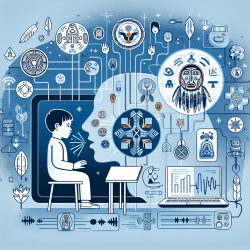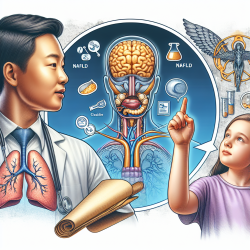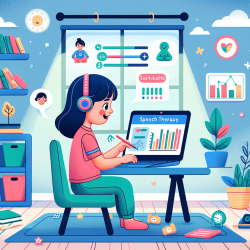As a speech-language pathologist committed to data-driven decisions and creating positive outcomes for children, the latest research on oculomotor rehabilitation in children with dyslexia offers promising insights. The study titled Oculomotor rehabilitation in children with dyslexia demonstrates the significant benefits of targeted eye movement training for improving reading skills in dyslexic children.
According to the research, children with dyslexia often exhibit abnormal eye movements, such as delayed saccades, reduced tracking gain, and poor saccade accuracy. These deficits contribute to the challenges they face in reading fluently and comprehending text. The study divided dyslexic children into two groups: one received oculomotor rehabilitation while the other did not. The intervention included fixation, saccade, and tracking training performed twice weekly for eight weeks.
The results were compelling:
- Improved Saccade Accuracy: Saccade accuracy increased from 70.62% to 90.92% in the intervention group.
- Reduced Saccade Latency: Saccade latency decreased from 269.93 ms to 206.13 ms, aligning with typical children’s performance.
- Enhanced Tracking Gain: Tracking gain improved from 72.34% to 84.03%, indicating better pursuit of moving targets.
These improvements suggest that oculomotor rehabilitation can significantly enhance the visual processing skills necessary for reading. The study underscores the importance of integrating such interventions early in the treatment plan for children with dyslexia.
For practitioners, incorporating oculomotor exercises into therapy sessions can be a game-changer. Here are a few steps to get started:
- Initial Assessment: Use oculomotor tests to evaluate the baseline eye movement characteristics of dyslexic children.
- Tailored Intervention: Design individualized rehabilitation programs focusing on fixation, saccade, and tracking exercises.
- Regular Monitoring: Track progress through repeated oculomotor tests to adjust the intervention as needed.
- Parental Involvement: Educate parents on conducting exercises at home to reinforce therapy sessions.
Implementing these strategies can lead to significant improvements in reading fluency and overall academic performance. The research highlights that addressing oculomotor deficits is not just about eye movements but about enabling children to unlock their full potential.
For those interested in diving deeper into the study, the original research paper is available here.










